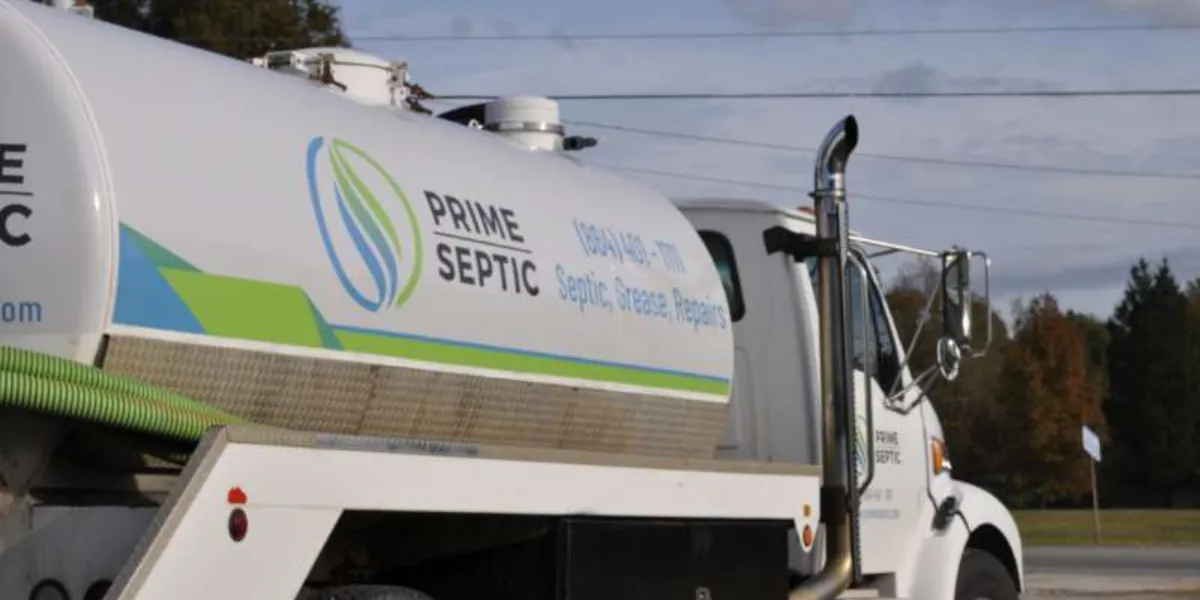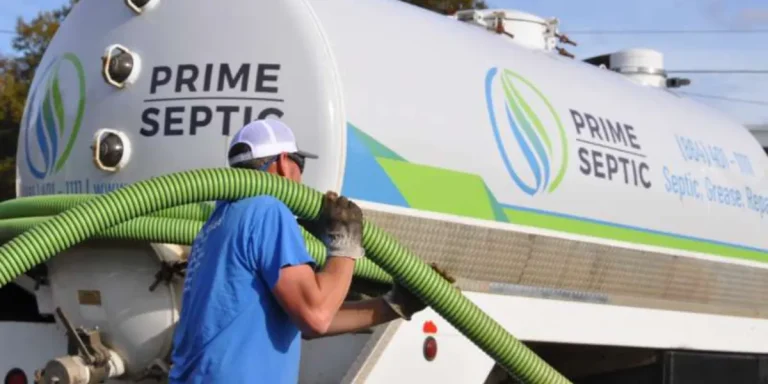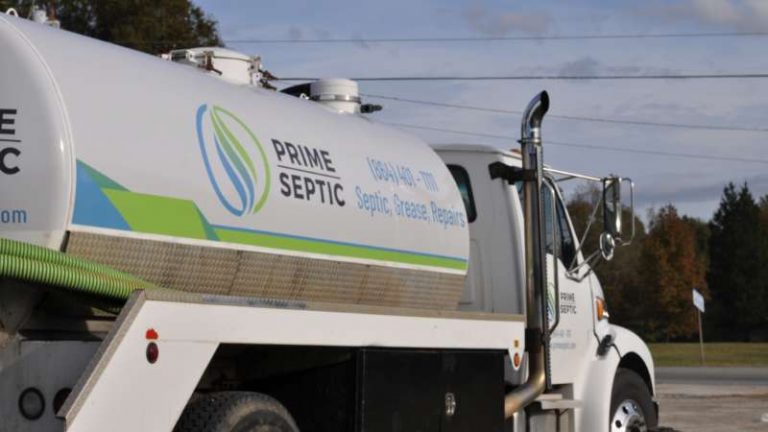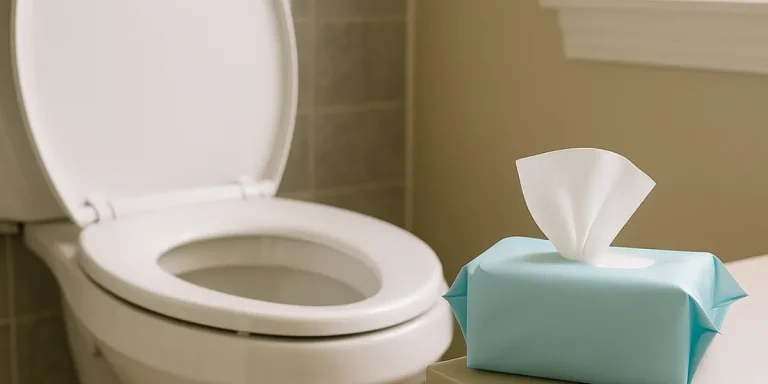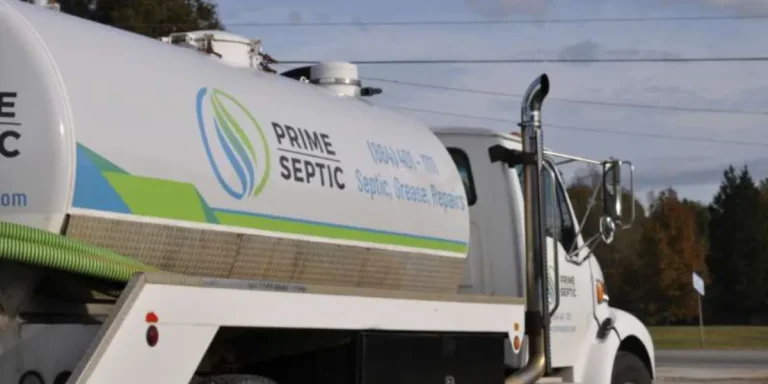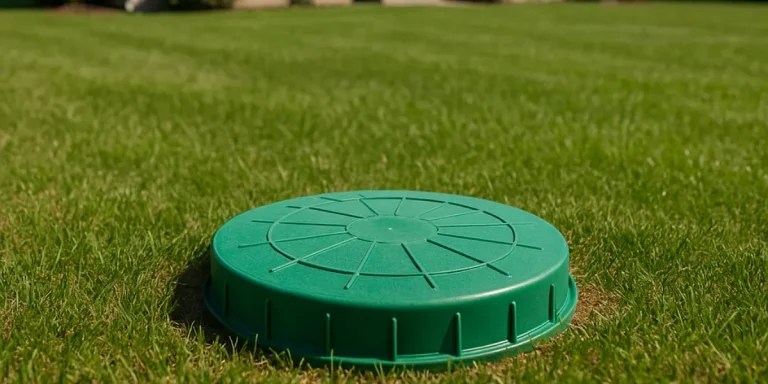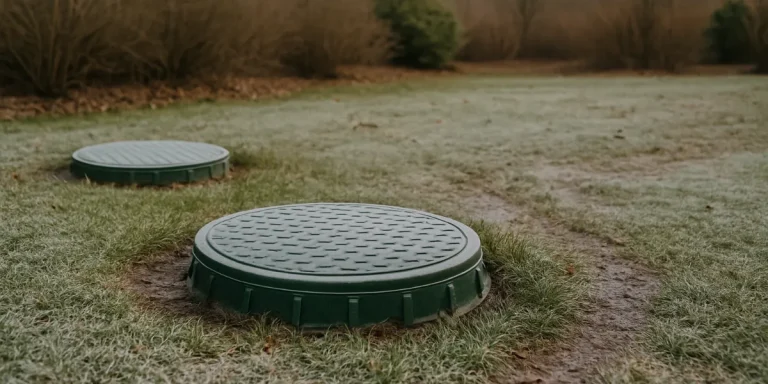Why Septic Filters Get Clogged and How to Prevent It
If you’ve been dealing with frequent backups, slow drains, or septic alarms, a clogged septic filter could be the culprit. The effluent filter plays a crucial role in protecting your drain field by catching solids before they leave the tank. But like any filter, it needs proper care—or it can cause more problems than it prevents.
At Prime Septic, we specialize in septic tank pumping, filter inspections, and septic system repairs throughout Belton, Piedmont, Simpsonville, and surrounding areas. In this post, we’ll explain why septic filters get clogged, how to spot the warning signs, and what you can do to prevent it.
What does a septic filter do?
Septic filters (often called effluent filters) are typically installed in the outlet baffle of the septic tank. Their job is simple but important: stop solid waste from flowing out of the tank and into the drain field.
By catching leftover solids, the filter protects your drain field from clogs and prolongs the life of your system. However, if the filter becomes too clogged, it can block the outlet entirely—causing wastewater to back up into your home or overflow at the tank.
Why septic filters get clogged
A clogged septic filter is more than just a nuisance—it’s often a symptom of deeper issues within your system. The filter’s job is to keep solids from exiting the tank and reaching the drain field, but when maintenance is inconsistent or usage habits are problematic, that filter can become overwhelmed. Knowing why septic filters clog helps you stay ahead of costly backups, repairs, or system failure.
1. Infrequent septic pumping
Your septic tank is designed to store solids while allowing wastewater to exit through the outlet. But as solids accumulate, they get closer to the effluent filter, increasing the risk of clogs. If your tank hasn’t been pumped in several years, your filter is likely working overtime—and that means it’s more likely to fail.
Common issues caused by infrequent pumping:
-
-
- Solids bypassing the filter and entering the drain field
- Thick sludge layers restricting outlet flow
- Higher risk of system backups and odors
-
At Prime Septic, we recommend routine septic tank pumping every 2–4 years depending on your household size and water usage. During each pumping, we also offer optional filter inspections and cleanings to make sure your system keeps flowing the way it should.
2. Using the wrong products
What goes down your drain matters. Many household products marketed as “flushable” or “safe” can wreak havoc on your septic system. Septic filters are especially vulnerable to:
-
-
- “Flushable” wipes that don’t break down in water
- Non-septic-safe toilet paper that clumps or swells
- Grease, fats, and oils that harden inside pipes
- Antibacterial soaps and harsh cleaning agents that kill beneficial bacteria
-
These products can disrupt digestion inside your tank, resulting in heavier solid buildup and faster filter clogging.
Prime Septic frequently performs septic system inspections when homeowners report slow drains or unpleasant odors, only to find that improper product use is a leading contributor. Our technicians can recommend safer alternatives and preventive maintenance.
3. Excessive water usage
Too much water too fast can stir up solids and push them toward the filter. Even with regular pumping, heavy usage can overwhelm your tank and increase the risk of filter clogging.
This often happens when:
-
-
- You run multiple large laundry loads in a day
- There’s a spike in usage from guests or events
- Plumbing leaks cause continuous water flow into the system
- Water-saving habits aren’t being followed
-
If your water use has changed recently—or your system was designed for fewer people—Prime Septic can assess the tank, inspect the filter, and help you adjust usage or schedule earlier service. We also offer drain field repairs if excessive flow has caused downstream issues.
4. Faulty or poorly installed filters
Sometimes the problem lies in the filter itself. Low-quality, incorrectly sized, or poorly positioned filters can clog more often and fail to protect your system effectively.
Signs your filter may need replacement or adjustment:
-
-
- Clogs that return even after cleaning
- Filters that appear loose, cracked, or misaligned
- Older systems using outdated or incompatible components
-
At Prime Septic, we check every filter for proper installation, material quality, and compatibility during any septic repair or inspection. If needed, we’ll install a replacement that’s better suited to your system, helping you avoid future problems and extend the life of your tank.
Signs your septic filter might be clogged
Septic filter clogs can be tricky to identify because the symptoms often resemble those of a full tank, a blocked pipe, or even a failing drain field. However, the filter is one of the most common points of failure—especially if it hasn’t been inspected in several years.
If you notice any of the following signs, it may be time to schedule a professional inspection before the issue leads to a backup or expensive repair:
-
- Gurgling sounds in your drains or toilets
Air bubbles caused by restricted flow can produce gurgling or “blub-blub” noises when water drains. This is often an early indicator that the outlet flow is obstructed—commonly by a clogged filter. - Slow drainage throughout the home
When sinks, tubs, and toilets all begin draining slowly at the same time, it typically points to a system-wide restriction, not just a localized plumbing issue. A blocked filter may be preventing wastewater from exiting the tank efficiently. - Frequent toilet backups
If your toilets are backing up regularly—especially during times of normal use—it could be that the effluent filter is restricting flow and causing pressure to build inside the tank. - Standing water near the septic tank or lid
Water pooling near your tank or around your access riser can indicate an outlet blockage, forcing wastewater to surface rather than drain. This is a red flag that should be addressed immediately. - Septic alarm alerts (if your system has one)
Systems equipped with high-water alarms may sound when wastewater levels rise too high—often due to a blocked filter. If your alarm is activated, stop using water and call for service right away. - Unusual odors around the tank or home
Foul smells near your tank lid, drain field, or inside your home can indicate that wastewater is not flowing as it should and is stagnating in the system.
- Gurgling sounds in your drains or toilets
At Prime Septic, we’ve helped homeowners across Belton, Pelzer, Piedmont, and other Upstate South Carolina communities resolve these issues quickly and professionally. Our team performs detailed septic inspections that include a hands-on evaluation of the filter. If we find it’s clogged, we can clean or replace it on the spot during the same visit—saving you time, money, and hassle.
We also check for signs of deeper issues like a full tank, system overload, or developing drain field problems, and we offer septic tank pumping, filter cleaning, and repairs if needed.
How we inspect and clean septic filters
At Prime Septic, we don’t take a one-size-fits-all approach to septic maintenance. Every service visit begins with a clear goal: to make sure your system is operating safely, efficiently, and without hidden issues. Septic filter inspections are one of the most important—but often overlooked—steps in achieving that.
When you schedule a service call with Prime Septic, here’s what you can expect:
-
- Locating and accessing the tank
We start by finding your septic tank and uncovering the lids. If your tank doesn’t have a riser or easy-access lid, we offer septic riser installation to make future maintenance more convenient and affordable. - Visual system check
Before touching the filter, we visually assess the overall condition of your tank, including the sludge level, inlet and outlet baffles, and any signs of structural issues or potential failure. - Filter removal and inspection
We remove the effluent filter from the outlet baffle and inspect it closely for:-
- Excessive solid buildup
- Grease or foreign material blockage
- Signs of physical damage (cracks, breaks, or warping)
- Misalignment or poor installation from previous work
-
- Locating and accessing the tank
Based on what we find, we may take the following steps:
-
- Clean the filter using a pressurized spray to remove debris and buildup that’s limiting flow. This restores performance and prevents backups.
- Replace the filter if it’s damaged, poorly made, or not functioning properly. We use high-quality filters designed for long-term performance.
- Inspect for system stress, including signs of hydraulic overload or root intrusion. These issues often contribute to repeated clogs and may require further repairs or drain field assessment.
- Recommend septic pumping if solids are rising too close to the filter. If needed, we can perform septic tank pumping during the same visit to bring your system back into balance.
This process is fast, non-invasive, and an essential part of any routine septic service—especially for older homes, high-occupancy households, or properties with frequent usage spikes.
We perform these inspections across Belton, Simpsonville, Honea Path, Fountain Inn, and surrounding areas. Many of our clients opt to pair filter inspections with scheduled pumping or seasonal checkups for peace of mind and system longevity.
At Prime Septic, we don’t leave until we’re confident your filter—and your entire system—is working exactly as it should.
How to prevent filter clogs
Preventing septic filter clogs isn’t difficult—it just requires a little maintenance and a few smart habits:
-
- Pump your tank every 2–4 years depending on household size and usage
- Use septic-safe toilet paper and avoid flushing wipes, feminine products, or cotton balls
- Avoid pouring grease or oils down the drain
- Spread out laundry loads and large water uses over several days
- Schedule septic filter inspections every time your tank is pumped
Some homeowners in Belton and nearby towns also choose to install septic tank risers and lids to make filter inspections easier and reduce labor costs in the future.
Proudly serving Belton and surrounding communities
Prime Septic is proud to offer septic filter inspections, pumping, and repairs in:
If you’re in or near these areas and think your septic filter may be clogged, we’re here to help.
Call now to schedule your filter inspection
Don’t wait until your system backs up—get ahead of the problem.
Contact Prime Septic today to schedule a filter inspection or septic tank service. We provide honest recommendations, expert service, and fast response times for homeowners throughout Belton and the Upstate region. Whether it’s a routine cleaning or an emergency backup, we’ll make sure your system is working the way it should.

